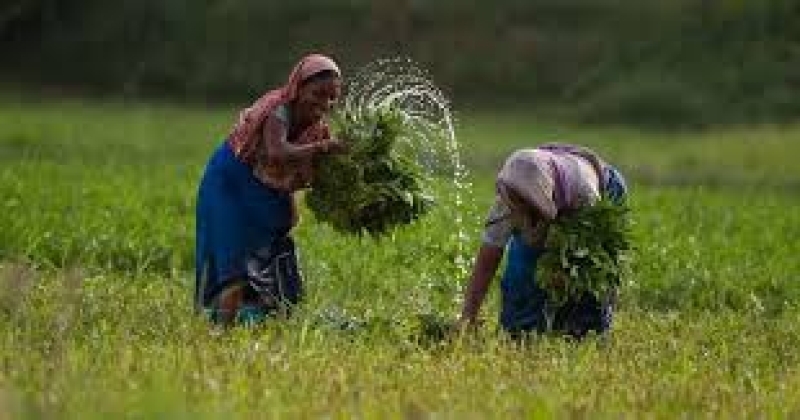- Depositors stranded as Sammilito Islami Bank is in liquidity crisis |
- BNP faces uphill task to reach seat-sharing deal with allies |
- Bangladesh rejects India’s advice; vows free, fair polls |
- Hadi’s condition very critical: Singapore Foreign Minister |
- Asia-Pacific hunger eases, Gaza pipeline fixed, Europe hit by flu |
Sunamganj farmers worry over fair prices for Boro paddy

Agriculture in Bangladesh
Sunamganj, Apr 22 — Farmers in the haor region of Sunamganj are growing increasingly anxious about securing fair prices for their Boro paddy as harvesting continues in full swing across the district.
Although the government has fixed the procurement price at Tk 1,400 per maund, growers are alarmed by alleged price manipulation by organised syndicates and are urging authorities to dismantle these rackets.
Local farmers and agricultural leaders argue that if the government purchases paddy directly from remote areas in larger volumes, it would compel middlemen and rice millers to offer fairer prices—ultimately benefiting the producers.
As of Saturday, 24 percent of the Boro crop—across both haor and non-haor areas—has been harvested.
But, many farmers, pressed to cover rising harvesting expenses, are already selling their paddy to millers and advance buyers at lower prices.
Others are holding out in hopes that prices will improve once the government’s procurement drive begins.
A farmer from the Muktikhola area in Bishwamvarpur upazila shared that he had accepted a Tk 50,000 advance, agreeing to supply dry paddy at Tk 1,000 per maund.
Another farmer, Mohibur Rahman, who expects to harvest around 150 maunds from both leased and owned land, said he plans to sell 120–130 maunds.
He hopes to sell at least one tonne to a government warehouse; otherwise, he will be forced to turn to private traders.
Mukul Roy, a farmer from Rahimapur in Jamalganj, said he is struggling to hire harvest workers or machinery and is negotiating with labourers from neighbouring areas, who are demanding upfront cash payments and a share of the crop.
Other farmers, like Samayun Ahmed from Tahirpur, complain about corruption in the procurement process.
He alleges that in previous years, political intermediaries controlled farmer ID cards and supplied rice on behalf of the actual producers, leaving genuine smallholders out of the system.
Agricultural activist Khairul Bashar Thakur Khan noted that farmers are currently selling wet paddy at just Tk 900 per maund in the fields.
He said if the government purchases even one or two tonnes per farmer, many marginal producers will benefit—unlike in past years when middlemen dominated the process.
Chitta Ranjan Talukder, president of the Haor Agriculture Protection Council, criticised the government’s procurement centres for being located far from villages and for being largely run by brokers.
He suggested that mobile trucks should be dispatched to the villages with the help of union agriculture officers to buy dry paddy directly—even if transport costs are borne by the farmers.
There are also growing concerns about fraudulent practices, with fake farmers and brokers allegedly collecting agricultural ID cards from genuine farmers for a few hundred taka to take advantage of procurement quotas.
Leaders from various political and farmers’ organisations have called on the authorities to ensure fair pricing and protect small-scale producers from exploitation.
According to the Department of Agricultural Extension, over 223,000 hectares of land have been cultivated with Boro paddy in Sunamganj this season, with an expected yield of over 1.84 million tonnes. So far, around 24 percent has been harvested.
Sunamganj District Food Controller Humayun Kabir said the government aims to procure 14,645 metric tonnes of paddy from April 24.
Farmers will be allowed to sell between 120 kg and 3 tonnes, with possible local adjustments to accommodate more smallholders.
Officials are hopeful that the deployment of over 100 agricultural supervisors will ensure fairer access for marginal farmers and help stabilise prices in the local market. - UNB

